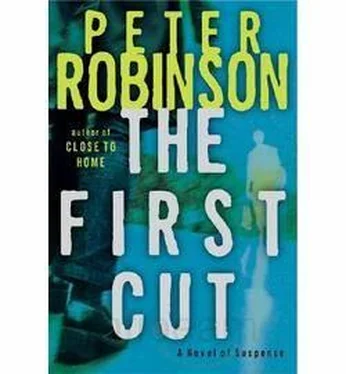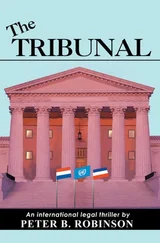One hot, bright day in late July, she stopped in a Cotswold village for a cold drink. Walking back to the car, she noticed a craft center in an old stone cottage and decided to have a look inside. The cottage had been extended at the back and part of it converted into a glass-blowing studio. Kirsten watched entranced as the delicate and fragile pieces took shape from molten glass at the end of the tube. Afterward, as she browsed around the shop, she noticed a row of solid glass paperweights, like the one in Laura’s office, with colorful abstract designs trapped inside them. The rose pattern appealed to her most, and she bought it, feeling great satisfaction at the smooth, slippery weight in her palm. And it gave her an idea.
That evening in her room, she prepared for self-hypnosis again, doing breathing exercises and relaxing each muscle in turn. When she was ready, she sat before her desk, where the paperweight lay between two candles, drawing and twisting their light into its curved scarlet petals. Her book had mentioned that there were many ways of self-hypnosis, and she had chosen the method said to be the most effective. But whether there was something about the connection with her early sessions with Laura, or something special about the paperweight itself, Kirsten found she had much more success this way. Though the first attempt led to no great breakthrough, she got a strong feeling that she would soon find what she wanted if she persisted.
It happened a week later. She had been taking herself further and further back from the attack and moving forward slowly. This time she started with her preparations for the evening: a long bath, the lemon-fresh scent of her clean comfortable clothes, the pleasant walk to the Ring O’Bells with Sarah. As usual, she drew back at the oily rag and the fishy smell, but this time she heard his voice. Not all the words-just fragments about a “dark one” and a “song of destruction”-but it was enough. With her training in linguistics and dialect, Kirsten could place the accent easily enough.
When she came out of the light trance, her heart was thumping and she felt as if she had just been dropped into an icy bath. She breathed deeply, fully alert now, and poured herself a glass of water. The raspy voice still sounded clear in her mind. He was from Yorkshire. She couldn’t be certain, but she didn’t think he had a city accent or the broad speech of the Dales and the Pennine Moorlands. When she added this new knowledge to the salt smell of raw fish that had covered his fingers and palms, then she knew he was from the Yorkshire coast-a holiday resort or a fishing village perhaps. The more she thought about it, replayed the voice and remembered her lessons, the more sure she became.
She jumped up and pulled down the old school atlas from her bookshelf. From what she could see, the coastline stretched from around Bridlington Bay in the south to near Redcar in the north. County boundaries were no sure guide, though, especially as they had been changed in the seventies. She didn’t think he was from as far north as Middlesbrough, where a Northum-brian strain subtly infused the local speech, but she would have to include the Humberside area as far south as the Humber estuary. That left more than a hundred miles of rugged coastline. It was useless, she thought. Even if she was right, she would never be able to find him in such a large area. She dropped the atlas on the floor and threw herself onto the bed.
The next day, she tried the same self-hypnosis technique again, and again she heard the voice, the flat vowels and clipped consonants. She felt something about the words this time, something that rang a bell deep inside her mind. Try as she might, though, she couldn’t identify them. He had been reciting a poem or a song of some kind. She had read somewhere that such killers sometimes do that, talk while they work, often quoting fragments of the Bible. But she didn’t think it was from the Bible. He had said something about “leaving a feast” because someone had asked him to sing a song and he couldn’t. She knew the words; she had heard them before at some time in her studies, but she couldn’t for the life of her remember where.
She slept badly that night, haunted by the fragmented speech and the raspy tone of his voice, but in the morning she felt no closer to her goal. She didn’t know how it could help, but she needed to know exactly what he had said. She had to think, to work at it. The source was old-certainly pre-Renaissance by the sound of it-and that probably meant something from medieval literature. People were always singing and attending feasts then. There was only one thing to do: read.
And so she set to reading medieval literature on warm days in the garden: Sir Gawain, Chaucer, Piers Plowman, anthologies full of religious lyrics. She read them all to no avail. All she got for her pains was that awful feeling of trying to find a quotation you have on the tip of your tongue but can’t pin down, or the frustration of looking for a phrase in Shakespeare when you can’t even remember what play it comes from. Outwardly, Kirsten seemed fine, preparing to go back to university, optimistic about her future. She even told her parents that she was considering the restorative surgery that the doctor had mentioned might be possible. But inside she was seething with anger and frustration.
One golden day in late August she sat out on the back lawn under the copper beech with hardly a breeze to stir her hair from her brow. She had given up on medieval literature as a source and gone back even further, to Anglo-Saxon, which she had studied in her first year. So far, she had read translations of Beowulf and “The Seafarer” and was now working her way through Bede’s An Ecclesiastical History of the English People. It was an old translation that she had bought in a secondhand bookshop, attracted by the worn blue binding, the gilded page edges, and a pleasantly musty smell that reminded her of the local library. Inside the flyleaf, in faded, copper-colored ink, was written, “To Reginald, with Love from Elizabeth, October 1939. May God go with you.”
Despite the translator’s flowery language, the Venerable Bede came through as far more human to her than many of his austere colleagues in the early church, and she could picture him out on the lonely island of Lindisfarne poring over illuminated manuscripts as he suffered through a wild Northum-brian winter. About two-thirds of the way through the book, she came to the passage about England ’s “first” poet, Caedmon, who had been unable to sing. Whenever the harp was passed around at dinners, and everyone was expected to contribute a song, Caedmon always stole away.
One evening, after he left a feast to care for the horses in the stables, he had a vision in which a man came and spoke his name and asked him to sing. Caedmon protested, but the stranger paid no attention to his excuses. “Yet shall ye sing to me,” he insisted. When Caedmon asked what he should sing about, the man replied, “Praise ye Creation.” And Caedmon found his inspiration.
There was no blinding flash of light, but as Kirsten read, the dark cloud that had lodged itself in her mind since the attack seemed to disperse. In addition to her own silent voice, she could hear another voice reading along with her a perversion of Bede’s words: “And, lo, I asked, Of what shall I sing? and the Dark One told me, Sing of Destruction.’ ” It was the story he had told her as he beat her and slashed at her in the park that night. The summer garden turned to mist around her like a place filmed through a greasy lens, and her book slipped onto the grass. She took a deep breath and closed her eyes. Afterimages of light and leaves danced before her eyelids, then the memories flowed back unbidden.
She could see his face now, in shadow, with the moon over his shoulder catching one lined cheek, as he smeared the smell of fish all over her lips and nostrils. He stuffed a piece of oily rag in her mouth and it made her feel sick. Then he started slapping her, back and forth across her face, and talking in that raspy singsong voice about how he had left the Feast of Whores one night and had a vision of the Dark One, to whom he confessed his impotence. The Dark One, he said, gave him the power to sing to women. That’s what he was doing with his knife; he was singing to her, just like that old poet from his town, who had suddenly been blessed with the gift of poetry late in life.
Читать дальше












